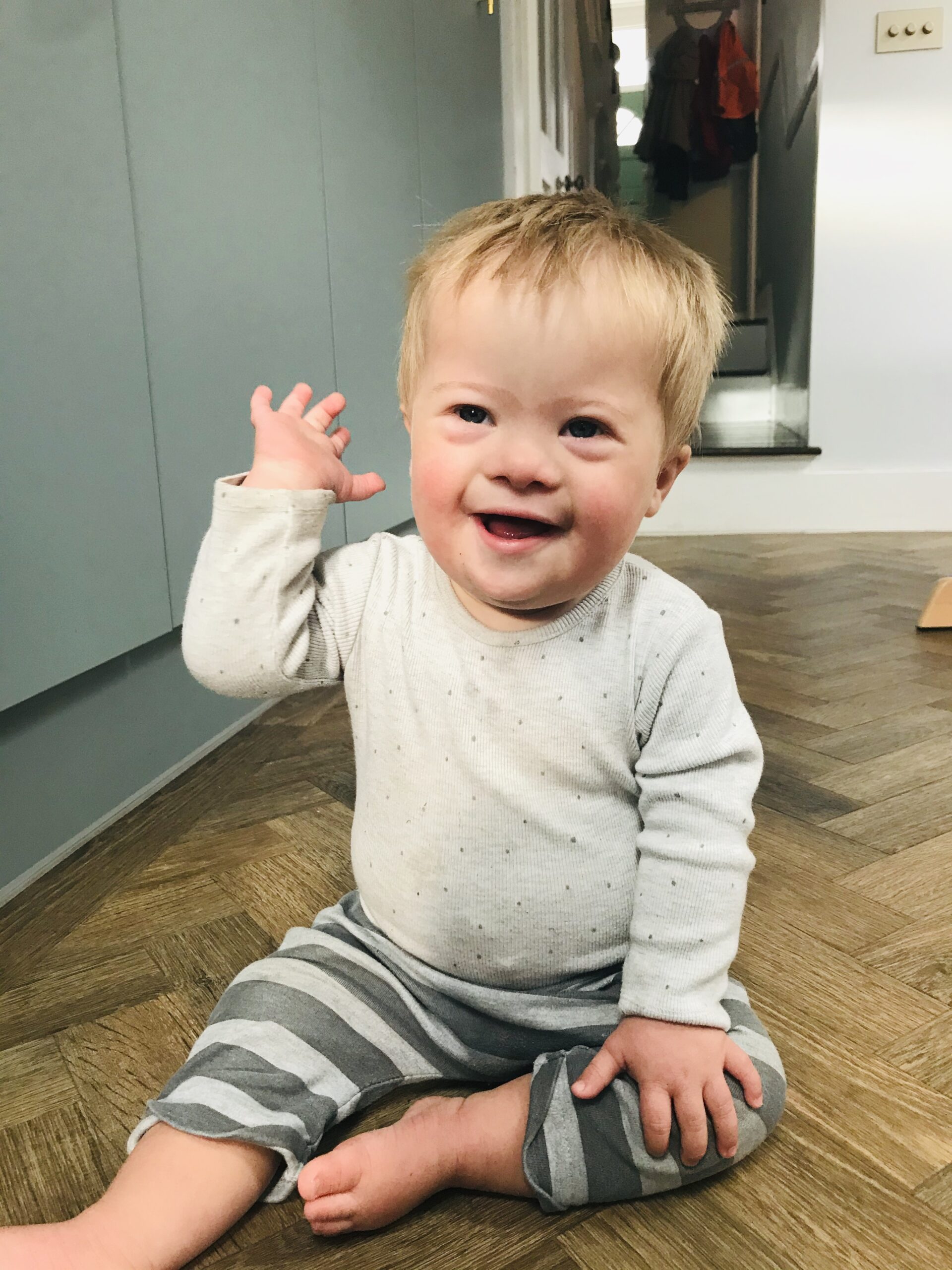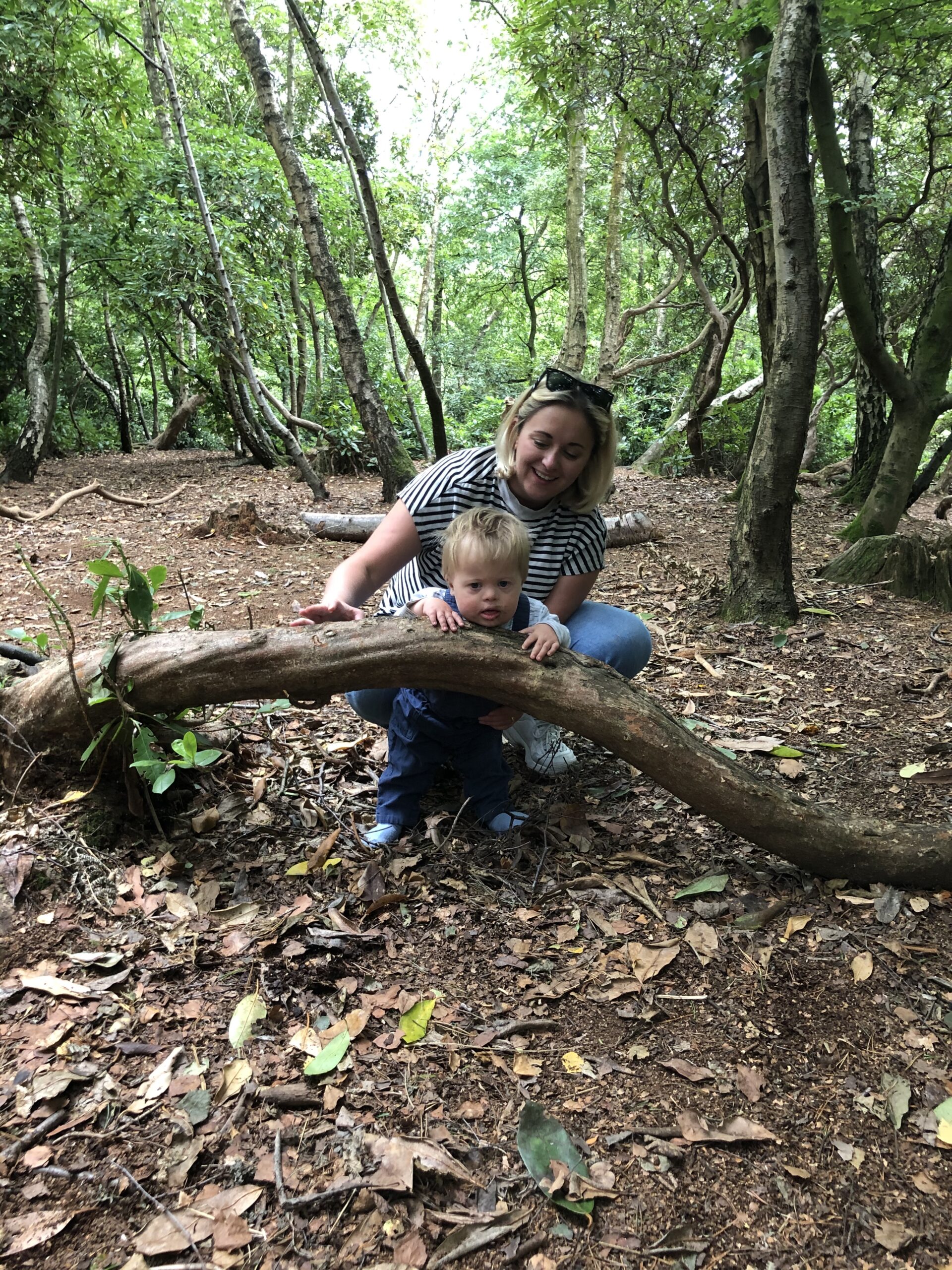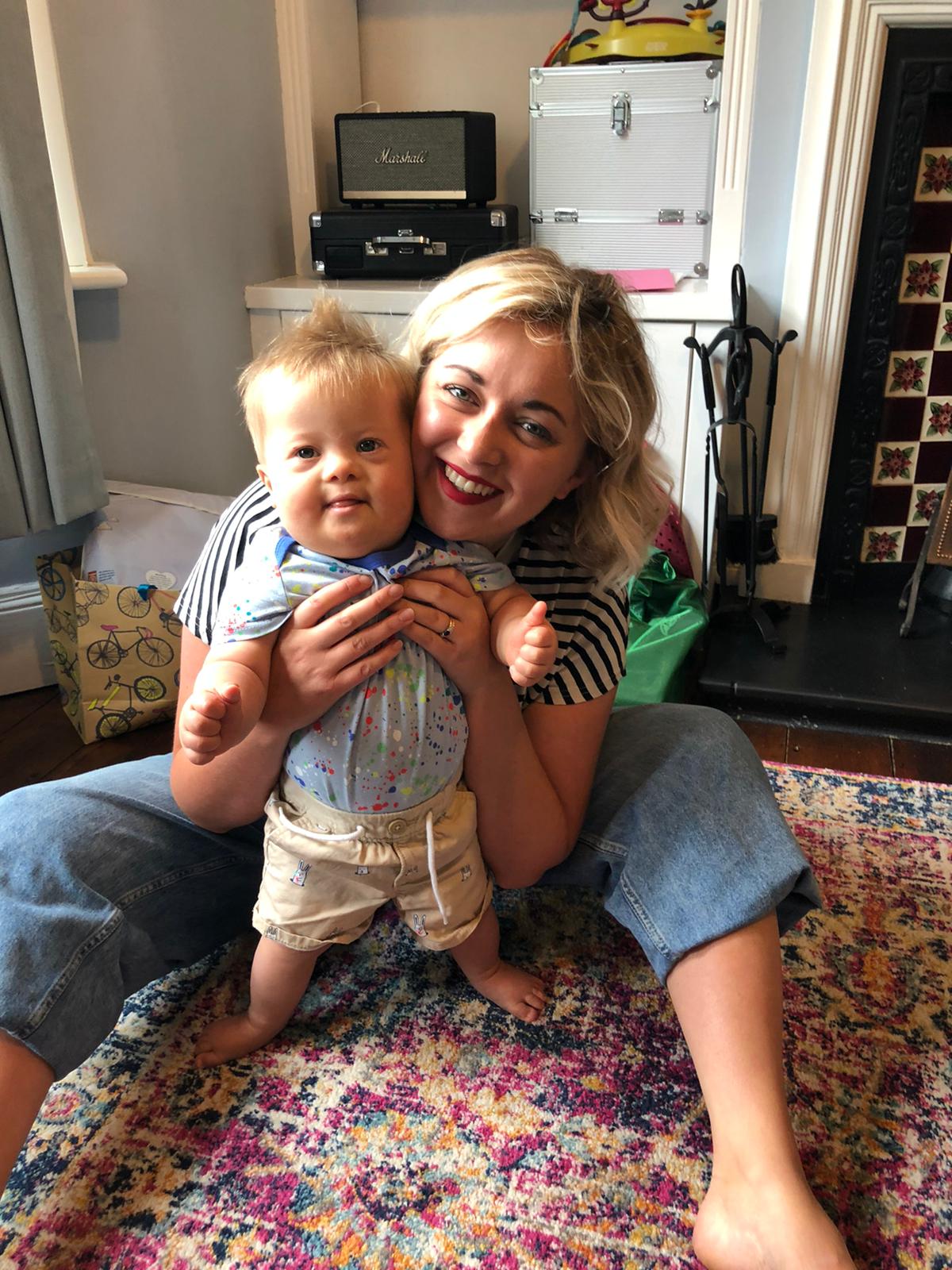A storyline in ITV soap opera Emmerdale has caused outrage in the Down syndrome community and raised some disturbing ethical issues. Máire Lea-Wilson explains why
I was 34 weeks pregnant when I learned that it was likely that my second child would have Down syndrome. had spent an hour lying on an uncomfortable bed, being scanned by two strangers who made it clear that the baby was not developing as expected and they were about to give us “bad news”. We decided against invasive diagnostic testing and instead to have noninvasive prenatal testing to give us a better idea of what lay ahead.
We were given no information about the lived experience of Down syndrome, just a long list of possible medical problems. We were told our “options” repeatedly, in cold medical terms – continue the pregnancy or abort. We were told that abortion is what most couples choose to do. Two weeks later, Aidan was born. He was such a beautiful little baby, with big blue almond-shaped eyes, a tiny button nose and a tuft of dark hair. He was perfect but we were still sad about that extra chromosome, which we were told would make our lives so much more challenging.
As we got to know Aidan and saw more of his wonderful personality, we realised he was not actually very different from any other baby. Aidan and his older brother Tom have become our best teachers. To them, Aidan is just Aidan, with no labels. Aidan is not different in any remarkable way – he is just different in the same way that every person is a unique individual. They have not learned to discriminate.
 The fear and uncertainty I felt in those early days lies in such stark contrast from our lived reality. I have often wondered how I was so certain of the difficult and challenging future I imagined, when I had never actually known anyone with Down syndrome. The reality is that we lead a perfectly normal life, full of the usual chaos that comes with having two young children. Where had this unconscious bias come from? The source of the unconscious bias, which is pervasive in society, became abundantly clear during the recent storyline in Emmerdale, where Laurel and Jai choose to terminate their pregnancy following a diagnosis of Down syndrome.
The fear and uncertainty I felt in those early days lies in such stark contrast from our lived reality. I have often wondered how I was so certain of the difficult and challenging future I imagined, when I had never actually known anyone with Down syndrome. The reality is that we lead a perfectly normal life, full of the usual chaos that comes with having two young children. Where had this unconscious bias come from? The source of the unconscious bias, which is pervasive in society, became abundantly clear during the recent storyline in Emmerdale, where Laurel and Jai choose to terminate their pregnancy following a diagnosis of Down syndrome.
The producers claim that the scripting had been done in a fair and balanced way, drawing on research done with medical professionals, the charity Antenatal Results and Choices and those with lived experience. What they left out was that they had failed to perform research, in any meaningful way, with those with lived experience of Down syndrome. What followed was both extraordinary and devastating to members of the Down syndrome community, as an openly public debate commenced on the very validity of the existence of people with Down syndrome. It became clear that, in the court of public opinion, people with Down syndrome are viewed as burdensome and to be coped with.
People with Down syndrome who spoke out were told they did not understand the storyline. Parents of people with Down syndrome who spoke out were, at best, framed as pro-lifers and, at worst, described as selfish for knowingly bringing such a life into the world. We were told to watch the episodes before we judged. The scripting of the Emmerdale storyline was accurate in some ways, because it did depict some of the turbulent and intense emotions that a couple may feel when a couple receive a prenatal diagnosis. I know this because my husband and I went through the very same thing.
However, that is where the accuracies ended. The storyline drew out many inaccurate old tropes and stereotypes about the syndrome, without any context, that will serve only to perpetuate fear and stigma around it. While the producers of Emmerdale may have had honourable intentions in covering an “emotive topic”, their failure to engage meaningfully with the Down syndrome community meant they skirted over a complex and nuanced debate in a deeply problematic, irresponsible and dangerous way. Their storyline was heavily biased by presenting the reality for expectant parents while failing to represent the reality of people with Down syndrome who live rich, happy, and fulfilled lives.
 This begs the question: how have we found ourselves in a position where an entire community can stand up and say this is wrong, this is hurtful and this is discrimination and find themselves at odds with broader society who view the Emmerdale storyline as completely acceptable and perhaps even “brave”? Maybe the answer lies right at the start of life, in our maternity services. When you are pregnant in the UK, you get offered two routine scans during your pregnancy. These are an exciting opportunity to take a sneak peek at the
This begs the question: how have we found ourselves in a position where an entire community can stand up and say this is wrong, this is hurtful and this is discrimination and find themselves at odds with broader society who view the Emmerdale storyline as completely acceptable and perhaps even “brave”? Maybe the answer lies right at the start of life, in our maternity services. When you are pregnant in the UK, you get offered two routine scans during your pregnancy. These are an exciting opportunity to take a sneak peek at the
tiny human growing inside you, a moment that can bring you to tears. During the first scan, at 12 weeks, you will be asked: “Are we doing the combined screening today?”
Around 80% of women in the UK choose to have screening. Screening gives you your chance of having a child with one of three trisomies – Down syndrome, Edward’s syndrome and Patau’s syndrome. If a woman receives a high chance result, she is offered amniocentesis or chorionic villus sampling (CVS), which are diagnostic tests that tell you definitively. Then you are given a choice: do you want to continue the pregnancy or terminate? Our best estimates show us that 90% of pregnancies with a prenatal diagnosis of Down syndrome end in termination. If this diagnosis is made, you can terminate that pregnancy right up to birth whereas the time limit for a typical child is 24 weeks.
These statistics are going only in one direction. With the advent of non-invasive prenatal testing, the number of foetuses detected with Down syndrome will increase and so will the termination rate. Figures released by 26 hospital trusts in England under freedom of information laws show that the number of babies being born with Down syndrome has fallen by 30% in NHS hospitals that have introduced prenatal screening. In 2017, Iceland hit the headlines when it was claimed that through a “successful” screening programme, it had managed to “eradicate” Down syndrome. Eradicate. Think about that word. We aren’t talking about curing a disease here. We are talking about the systematic elimination of a type of a person.
From the moment of conception, women are being subtly – and sometimes overtly – conditioned to view Down syndrome as something to fear and to be avoided. It is demonstrated in the language used – “risk”, “abnormality” and “problems”. It is demonstrated in our laws, which differentiate the time limit for abortion based on genetic difference. It is demonstrated through our media, where a storyline that normalises termination of pregnancy following a Down syndrome diagnosis is perceived as completely
acceptable – regardless of the hurt and offence it has caused a minority community with protected characteristics.
Women are not being given the correct information to make an informed decision. There are websites and support groups out there who can give you the balanced view. But when you are experiencing anguish, resentment, and a sense of loss for the baby you thought you were having, it is so very hard to find this all out for yourself.
Screening: who benefits?
This raises the question; who is really benefiting in this scenario? It certainly is not people with Down syndrome. As fewer people with Down syndrome are born, it will surely decrease their opportunities, in terms of both social acceptance and funding and research into improving their medical, educational, and social prospects.
 Does it benefit expectant parents? I shudder to think what could have been had I made a different choice. Instead of having my beautiful, funny and loving boy, what would I have been left with? Does it benefit society at large? As we make further progress in the science of genomics, we will be able to “predict” the future of more and more individuals before they are even born. Screening for other genetic conditions is no longer within the realm of science fiction. The science is outpacing the ethics, and we desperately need a public debate on this, for the benefit of everyone.
Does it benefit expectant parents? I shudder to think what could have been had I made a different choice. Instead of having my beautiful, funny and loving boy, what would I have been left with? Does it benefit society at large? As we make further progress in the science of genomics, we will be able to “predict” the future of more and more individuals before they are even born. Screening for other genetic conditions is no longer within the realm of science fiction. The science is outpacing the ethics, and we desperately need a public debate on this, for the benefit of everyone.
We proclaim that as a society we believe that everyone deserves a fair and equal chance at life, regardless of their background – but is this true? As a society, are we comfortable with prenatally deciding what type of a life is a life not worth living?
Educating Emmerdale, the Down syndrome community response, is on Facebook at https://tinyurl.com/y8h7f29q
Máire Lea-Wilson is mother to four year old Tom and 20 month old Aidan, who has Down syndrome
